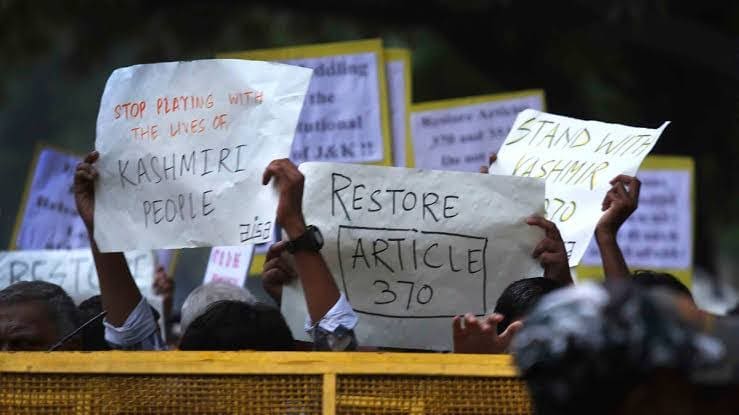
The Supreme Court decision to uphold the abrogation of Jammu and Kashmir’s special status has stirred a controversy in the international community.
A spokesperson for the Chinese government on Wednesday said that the Supreme Court judgement on Article 370 will not affect the longstanding position of China on the matter.
He argued that the western part of the India- China border has “always belonged to China”.
On 11 December, the Supreme Court issued an order upholding the abrogation of Article 370 in August 2019, which led to the reconfiguration of the State of Jammu and Kashmir to two Union Territories and the revocation of its special status.
The response reflects China’s unchangeable stance on the region that it had stated also in reaction to the abrogation earlier, when it had called the move a “unilateral revision of domestic laws”.
“China has never recognised the so-called Union Territory of Ladakh set up unilaterally and illegally by India. India’s domestic judicial verdict does not change the fact that the western section of the China-India border has always belonged to China,” Foreign Ministry Spokesperson Mao Ning said, reacting to the verdict.
Pakistan has also strongly criticised the judgement citing international law and conventions.
“International law doesn’t recognise India’s unilateral and illegal actions of 5 August 2019. The judicial endorsement has no legal value,“ Pakistan’s Foreign Minister, Jalil Abbas Jilani, said.
Jilani has stressed that India has “no right to make unilateral decisions on the status of this disputed territory” against the will of the Kashmiri people and Pakistan, PTI quoted him as saying.
According to him, Jammu and Kashmir is an internationally-recognised dispute, and the resolution must adhere to the relevant UN Security Council Resolutions and the aspirations of the Kashmiri people.
Pakistan’s former prime minister Imran Khan, who has been incarcerated in the Adiala jail of Rawalpindi, in a message said that India’s Supreme Court verdict upholding the abrogation of Article 370 would “further complicate” the Kashmir issue.
Earlier, the Organisation of Islamic Cooperation (OIC) had also raised its concern about the Supreme Court’s decision.
Though the Union Ministry of External Affairs has bashed the OIC’s statement accusing the body as “violator of human rights” and an “unrepentant promoter of cross border terrorism,” it has not yet made any comment on China’s remarks.
United Nations representatives reiterate their opinion that the loss of Kashmir’s autonomy threatens the disputed region’s demographic make-up.
Many political experts have argued that the Supreme Court of India’s decision, endorsing the abrogation of Jammu and Kashmir’s special status, represents a withdrawal from federalism, democratic norms and institutional control over power.
It is also said that the validation will provide a political boost to the ruling BJP by subverting federal principles and invisibilising the historical context of the Kashmir question.



